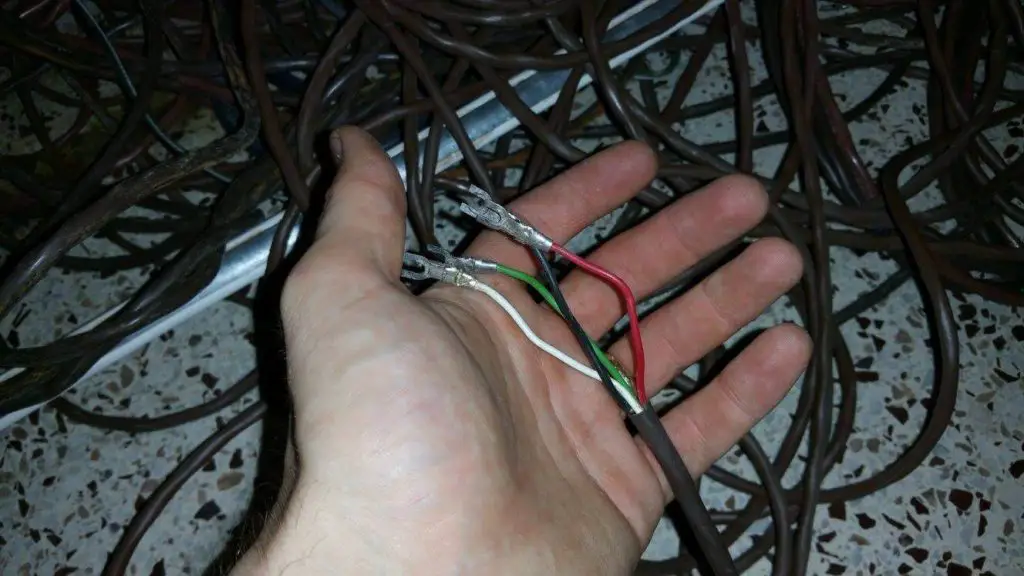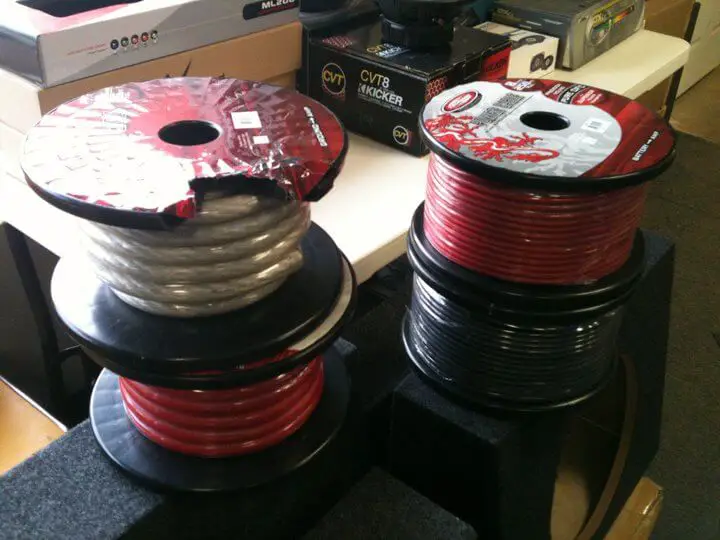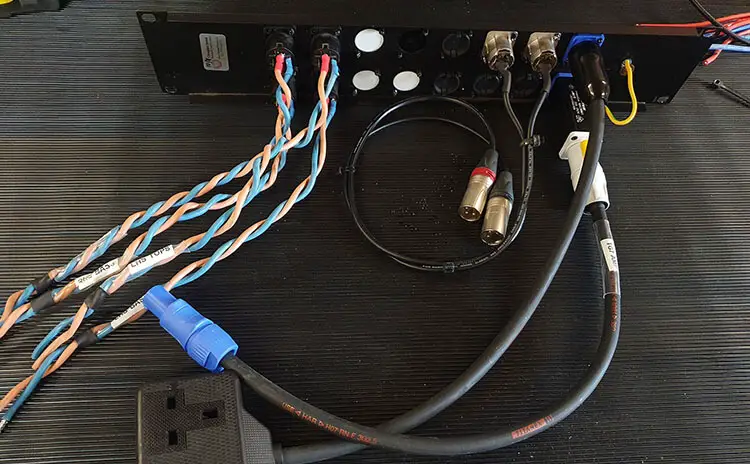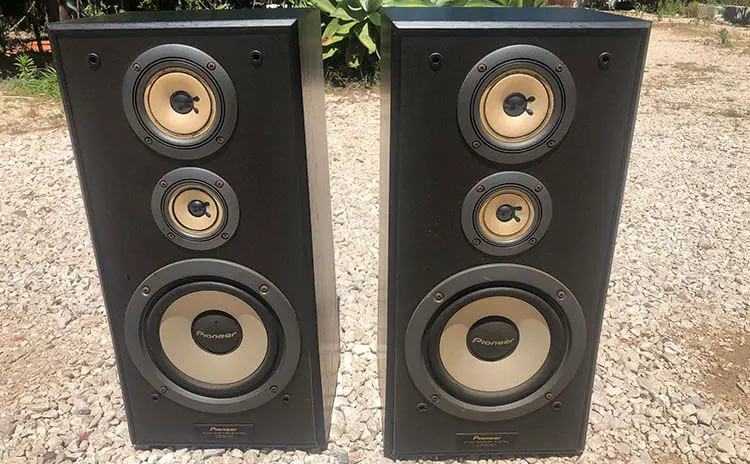Yes, you can use regular wire for speaker wire. Before other so-called experts fool you, let me tell you this. The regular electrical wire wouldn’t harm your speakers or amp. And there won’t be any noticeable difference between the two. You just need to know some facts and follow some instructions.
While a majority of youngsters prefer high-quality audio banging from their speakers. Yet some still prefer enjoying the audio quality coming directly from the TVs. In such cases, you might be wondering if a speaker wire is similar to a regular/electrical wire.
Hopefully, I will be able to explain everything clearly in this piece.
What Are The Major Differences Between A Speaker And A Regular Wire?

Well, a speaker wire and a regular one are similar in nature. Besides, you can use one instead of the other. However, there are some differences that you should know.
- Strands: Speaker wires are said to have more strands. This increases the flexibility property. As a result, it enhances the audio quality. But electric wires have fewer strands. Some come with solid conductors. They are often stiff and thereby damage vulnerable connectors.
- Polarity indicator: If you visit a hardware store, you will see that the speaker wires include a polarity indicator. Whereas you wouldn’t get in those regular wires. That is because it is not polarized.
- Stripping property: You can strip off a speaker wire easily. It is flexible so you can easily wire around tight corners. But it is very hard to strip off a regular electric wire.
- Insulation: The outer insulation of the speaker wires is pretty clear. In the case of electrical wires, the outer insulation wires are either black or white or colored.
- Voltage: The speaker wires are inappropriate for circuits having high voltage. It should deal with a voltage lower than 50V. But these inexpensive regular wires are capable of handling high voltage current.
Criteria For Regular Wires As A Substitute Of Speaker Wires

To use regular wires for speaker wire, make sure that it should have the following criteria:
1. Use A Wire With A Heavier Gauge
You would like to use a regular wire instead of those bulky-priced speaker wires. That’s totally fine. But you would also like to avoid unnecessary hassles. For example, if you move your speakers, that covers a longer distance. Or if your subwoofer is pretty large in size (try using an electrical wire specially made for welding machines). In such cases, use a regular wire with the heaviest gauge.
A heavier gauge means a longer wire with enough diameter and thickness. It also indicates a lower number. So check the gauge number when you are buying a regular wire.
2. Make Sure To Set The Polarity Right
Your regular wire wouldn’t work for the speaker if you do not set the polarity accordingly. That means, wiring them correctly to the polar is very important. That is, placing the red-to-red cable and black-to-black cable.
3. Check Whether Your Connectors Are Clean And Tight
This is yet another important criterion! Of course, your connectors need to be clean. In order to clean them, you need to use contact cleaner. Wipe them off once a month.
Also, they should be connected tightly and securely. If there is a loose connection, nothing would basically work. Be it a speaker wire or a regular one.
4. Your Audiophile System Also Matters
True that! Definitely, you can use a regular wire and enjoy better audio quality. However, that depends on your audiophile system!
If you are using a decent audiophile system (consumer grade), you will enjoy good-quality audio. Besides, you will hardly notice any differences.
But if you are using a high-end expensive audiophile system, you will surely notice the differences. That is because, high-end audiophiles include components, that make a difference in sound separately.
Disadvantages Of Using A Regular Wire For A Speaker Wire

Although I’d say that the usage for both is similar. There were different experiments/tests conducted to observe the differences. The result shows hardly any difference. However, there could be a few disadvantages to using a regular wire. I am going to mention those below:
- Your regular wire might lack flexibility as it has fewer strands. Somehow if it gets bent, it might not straighten up and remain like that. Unlike speaker wires that could bend or fold easily.
- Some speaker wires are specially made to transmit audio signals with no interference. And that is why many experts recommend using them. Regular wires don’t give you such assurance.
- Speaker wires also have a special property to transmit audio signals without overheating. While using regular wire, it would overheat eventually.
- The wire gauge should never be overlooked. If you are using a wire with a higher number of wire gauges. That means it is too thin and might affect the sound quality.
Now that you know the disadvantages, let’s move to the advantages of using a regular wire!
Advantages Of Using A Regular Wire
- Regular wires are pretty cheap. You will see those overpriced “speaker wires” in your nearby hardware store. Don’t get fooled as they work almost the same. There’s hardly any difference. Therefore, don’t waste a lot of bucks after these “speaker wires”. Just pick a 14 or 12-gauge colored wire and that would work smoothly!
- Regular wires work perfectly on high-voltage circuits. Those insanely expensive speaker wires tend to work below 50V.
- For indoor installation purposes, a regular wire just works great! So you never have to worry at all! But in case you are opting for outdoor purposes, I’d rather suggest you use outdoor-rated cable. Those can avoid overheating and rust. Hence, they are best for outdoor purposes.
- Again, regular wires are also great for covering longer distances. They have a gauge number that tells us their length. The greater the gauge number, the thinner and smaller the wire. In that case, an 18 gauge wire would be smaller than a 14 gauge wire. In such cases, I would recommend using thin and long wire with 16gauge or 14 gauge (that covers 100 feet or more).
- Speaker wires include aluminum strands. That might result in overheating when exposed to higher currents. But for electric wires, you don’t have to worry about this thing.
- For using speaker wire, you need to follow the ideal insulation rating. Otherwise, due to higher voltage, it would get overheated and might even cause a fire.
What Type Of Regular Wires You Can Use for speakers
You should always go for either silver or copper wires. They act as good conductors. Additionally, they are affordable as well. There are also gold, aluminum, and other materials. But they are prone to overheating and corroding easily.
There are also low-voltage electric wires that are a perfect match for the speaker wires. Then again, there are also NM cables. They usually cover higher voltage currents. They come in different sizes and jacket colors. The amp circuits are also different for different gauges.
You could also use THHN and THWN Wires. They are the best wires to prevent overheating. They also come up with additional features that safeguard the longevity of your building materials. They are nylon-coated thermoplastic wires. They are also well-insulated to avoid getting wet. Moreover, they work brilliantly in low-voltage currents.
Conclusion
You can definitely use regular wires for speaker wires. In some cases, they work far better than those expensive speaker wires. However, speaker wires let you enjoy better sound quality. So if you are someone with very good ears, you might like them.
But regular wires are no less. At an affordable price, they would work great for your autophile system. And the sound-quality difference is hardly noticeable!

